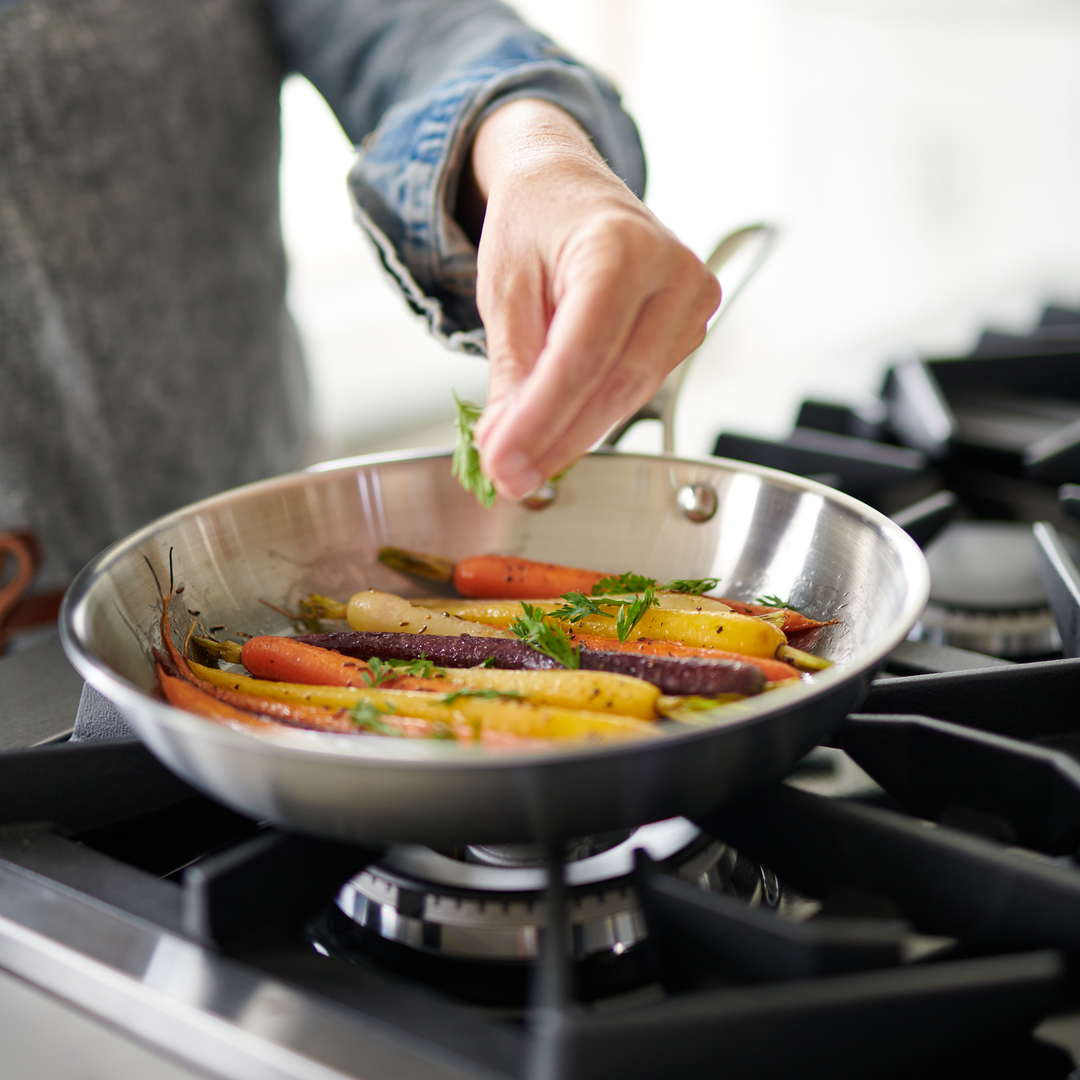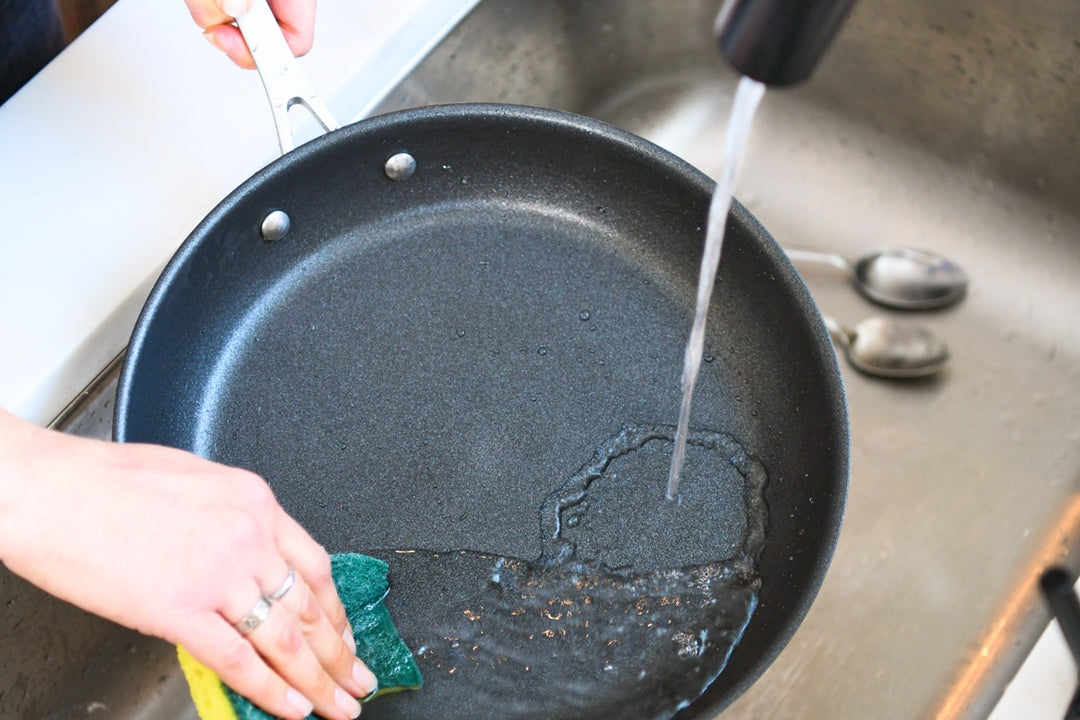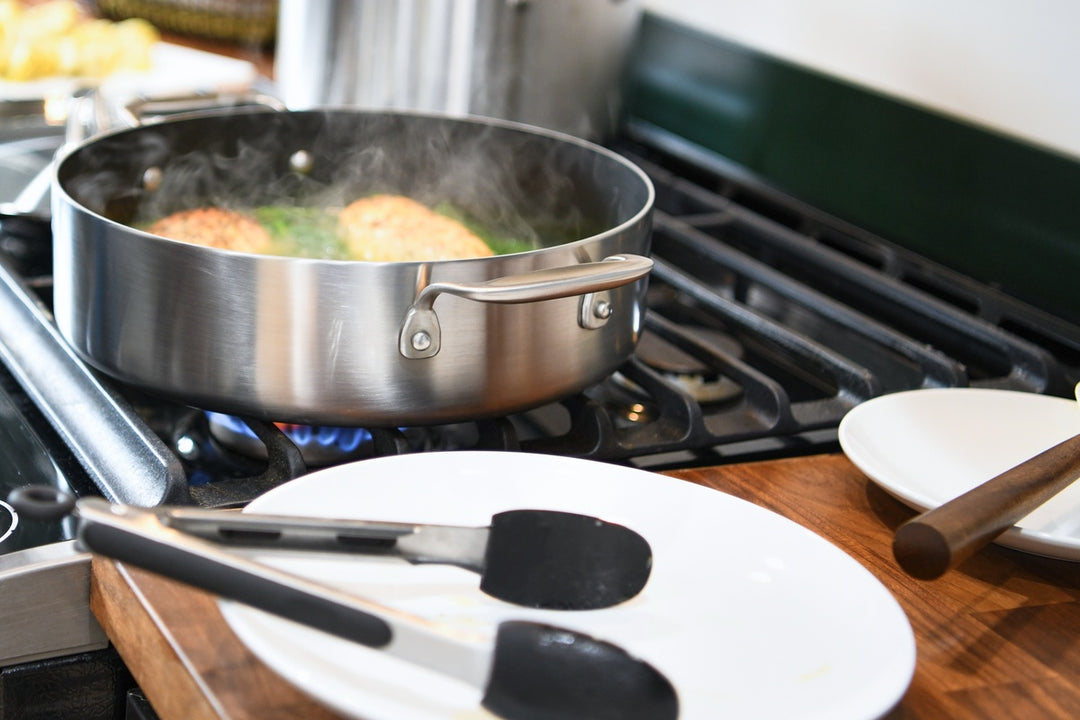Which Utensils Should You Use with Nonstick Cookware?

Nonstick cookware is a crowd favorite for a reason—it’s easy to use and easy to clean. Its seamlessly smooth and slick surface means you can make picture-perfect eggs, pancakes and crepes effortlessly (and without tons of butter or oil to release them from the pan).
Taking special care of your nonstick cookware will give it a longer lifespan (and don’t we all want that?). For example, you’ll want to stay away from nonstick cooking sprays and leaving acidic foods in the pan long after cooking as they can damage or stain the nonstick coating. Even more importantly, you’ll also want to avoid metal utensils in your everyday cooking routine. Here are three types of utensils that get along great with your nonstick cookware:
Wood
Wooden utensils won’t scratch your nonstick pans, which makes them a great option. Quality wooden utensils that are taken care of (i.e., never put in the dishwasher) can also last for decades and are sturdy enough to stir and mix with. However, they aren’t the best for flipping (when was the last time you turned over your fish using a wooden spoon?).
Silicone
Silicone utensils are super gentle on nonstick pans and they can take the heat. However, flipping large pieces of meat like hamburgers or steaks can be challenging. Silicone utensils can also be damaged by sharp knives if you aren’t careful. Overall, though, they’re sturdy yet flexible and easy to clean, which makes them a great choice for nonstick cookware lovers.
Nylon
Like silicone and wooden utensils, nylon utensils are great for nonstick cookware because they won’t damage the slick coating. They’re also extremely durable and sturdy, which means they’re great for mixing, flipping…basically all the tasks. Drawbacks? Food can get stuck to nylon, which makes it harder to clean (thank goodness they’re dishwasher safe). You also should be cautious around heat because they can melt.
As you can see, there’s no one perfect type of cooking utensil. Each has their own pros and cons. But when it comes to nonstick cookware, having tools that don’t scratch is essential. With a little TLC your cookware will stick around to thank you for years to come.




